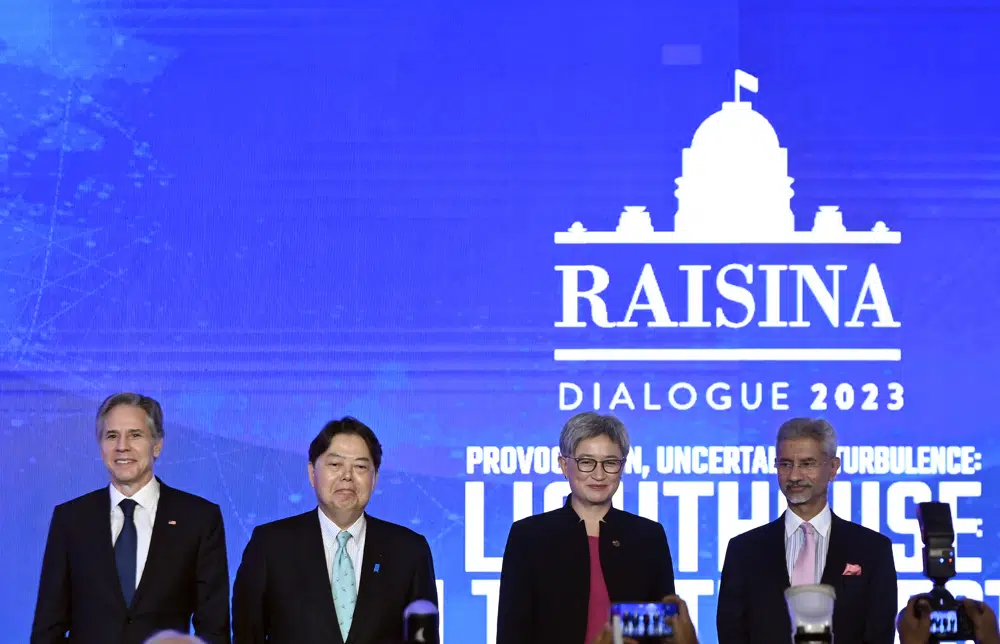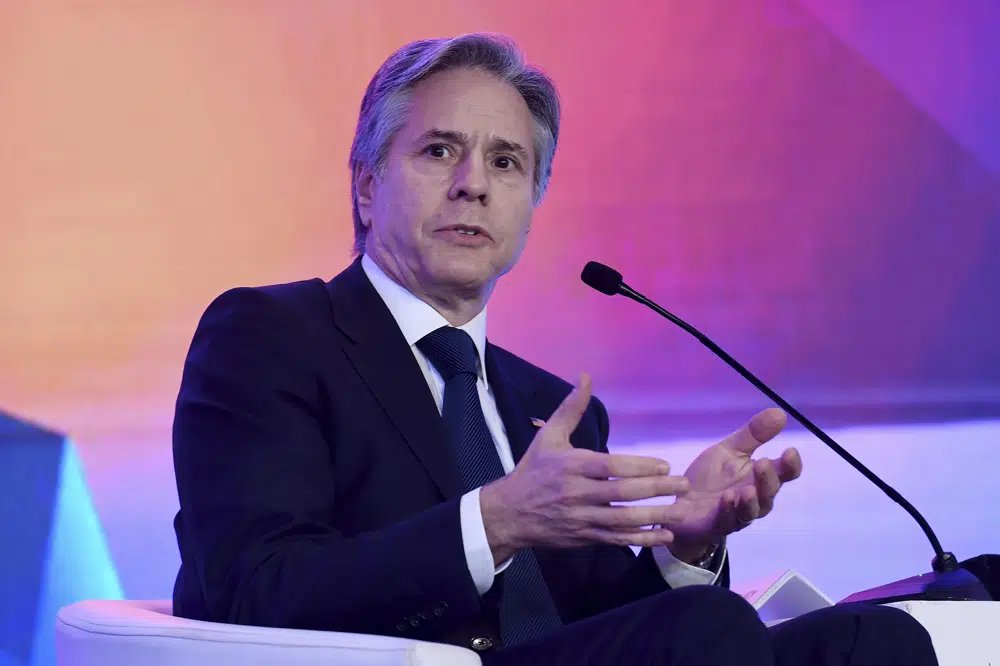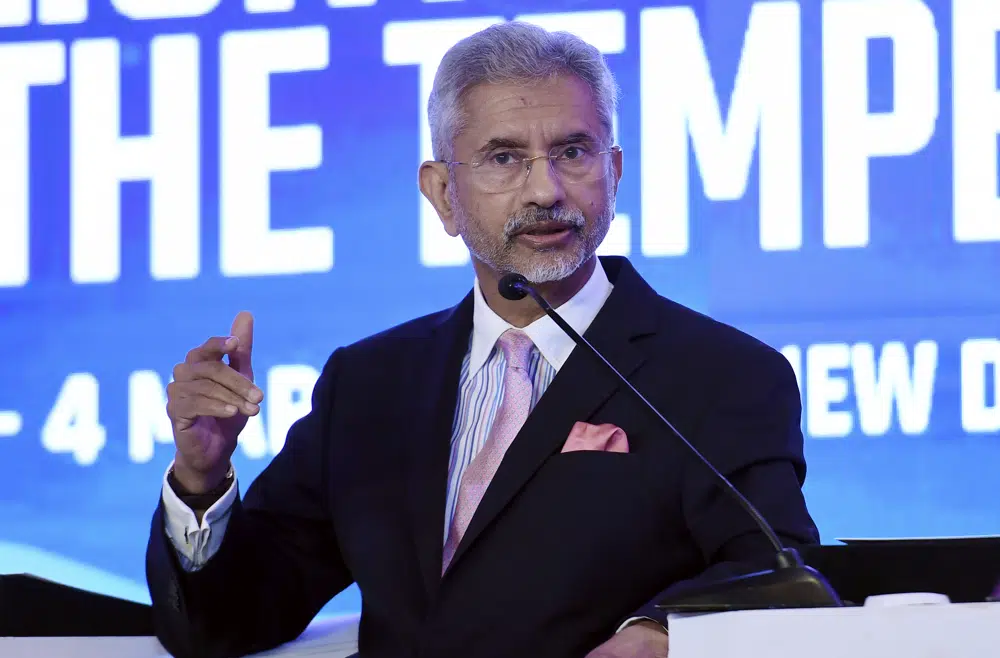The top diplomats of Australia, India, Japan and the United States have offered sharp but veiled criticism at China.
In comments at a public event and in a written statement, the four Foreign Ministers used buzzwords and phrases that reflected growing unease over China’s influence in the Indo-Pacific region.
Meeting in New Delhi, the four Ministers barely mentioned China by name and insisted that the so-called Quad group, short form for Quadrilateral Security Dialogue, is designed to boost their own national interests and improve those of others through enhanced cooperation in non-military areas.
“We strongly support the principles of freedom, rule of law, sovereignty and territorial integrity, peaceful settlement of disputes without resorting to threat or use of force and freedom of navigation and overflight, and oppose any unilateral attempt to change the status quo, all of which are essential to the peace, stability and prosperity of the Indo-Pacific region and beyond.”
Quad Foreign Ministers

In a direct shot at China, which has become increasingly aggressive in the Pacific and has alarmed its smaller neighbors by pushing claims to disputed maritime zones, the Ministers said that they viewed with concern the “challenges to the maritime rules-based order, including in the South and East China Seas.”
“We strongly oppose any unilateral actions that seek to change the status quo or increase tensions in the area.
“We express serious concern at the militarization of disputed features, the dangerous use of coast guard vessels and maritime militia, and efforts to disrupt other countries’ offshore resource exploitation activities.”
Quad Foreign Ministers
In Beijing, China’s Foreign Ministry criticized the Quad, saying that “cooperation among countries should conform to the trend of the times for peace and development and should not engage in exclusive cliques.”
Ministry Spokesperson, Mao Ning said at a daily briefing, “We hope the countries concerned will do something that is conducive to enhancing the security and mutual trust of regional countries and to maintaining regional peace and stability.”
Meanwhile, Russian Foreign Minister, Sergey Lavrov accused the United States of “trying to militarize Quad,” an accusation also often made by Beijing that America is trying to set up a new NATO-style alliance in Asia to counter China in the region.
Australia, Japan and the United States, among the most vocal critics of Russia, acknowledged that New Delhi’s ties with Moscow complicate its position.
Quad Seeks To Promote Democracy
Speaking at a panel at India’s Raisina Dialogue, the four Ministers maintained that the Quad does not seek conflict with China or to antagonize it but rather to promote democracy, good governance, transparency, digital security and global health and disaster relief.
“As long as China abides by the law and international norms and acts under international institutional standards this is not a conflicting issue between China and the Quad,” Japanese Foreign Minister, Hayashi Yoshimasa stated in a rare direct reference to China.
U.S. Secretary of State Antony Blinken iterated that the group is not designed to blunt China’s rise by demanding that countries align with Quad members or Beijing.

“Our proposition is not to say to countries in the region ‘You have to choose’. Our proposition is to offer a choice, a positive alternative.”
Antony Blinken,
Australian Foreign Minister, Penny Wong as well as Indian Foreign Minister, Subrahmanyam Jaishankar agreed.
“I prefer to think about what we are for, not about what we are against,” Wong opined.
“We do offer more choices,” Jaishankar said.

“We do collectively offer something different. Countries are interested, many of them are looking at the Indo-Pacific as a changing theater and how to define themselves.”
Subrahmanyam Jaishankar
READ ALSO: King Charles III To Visit France, Germany For First State Visits




















